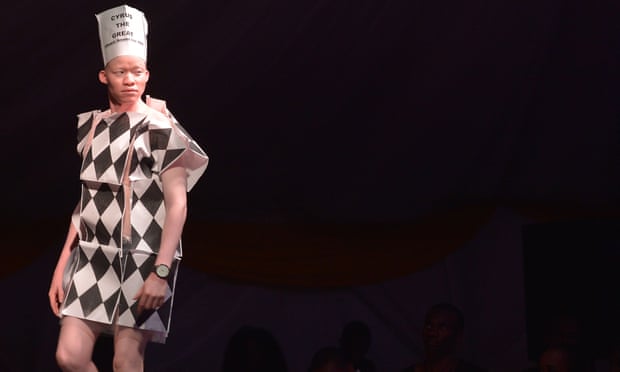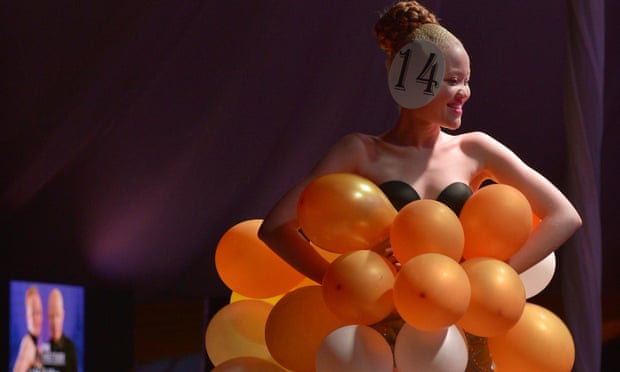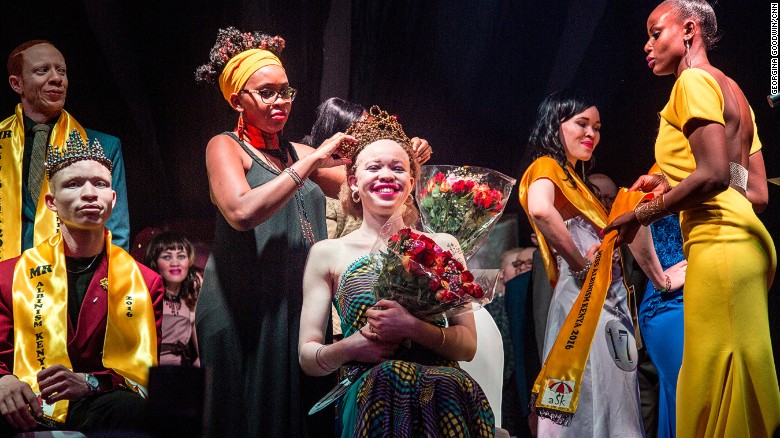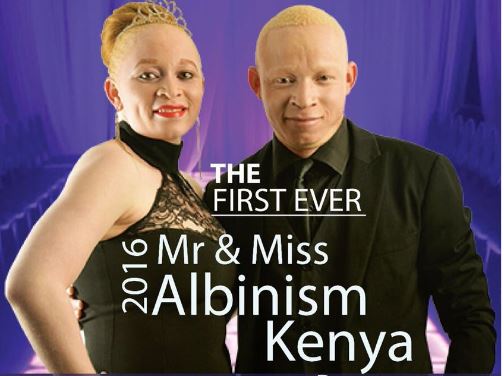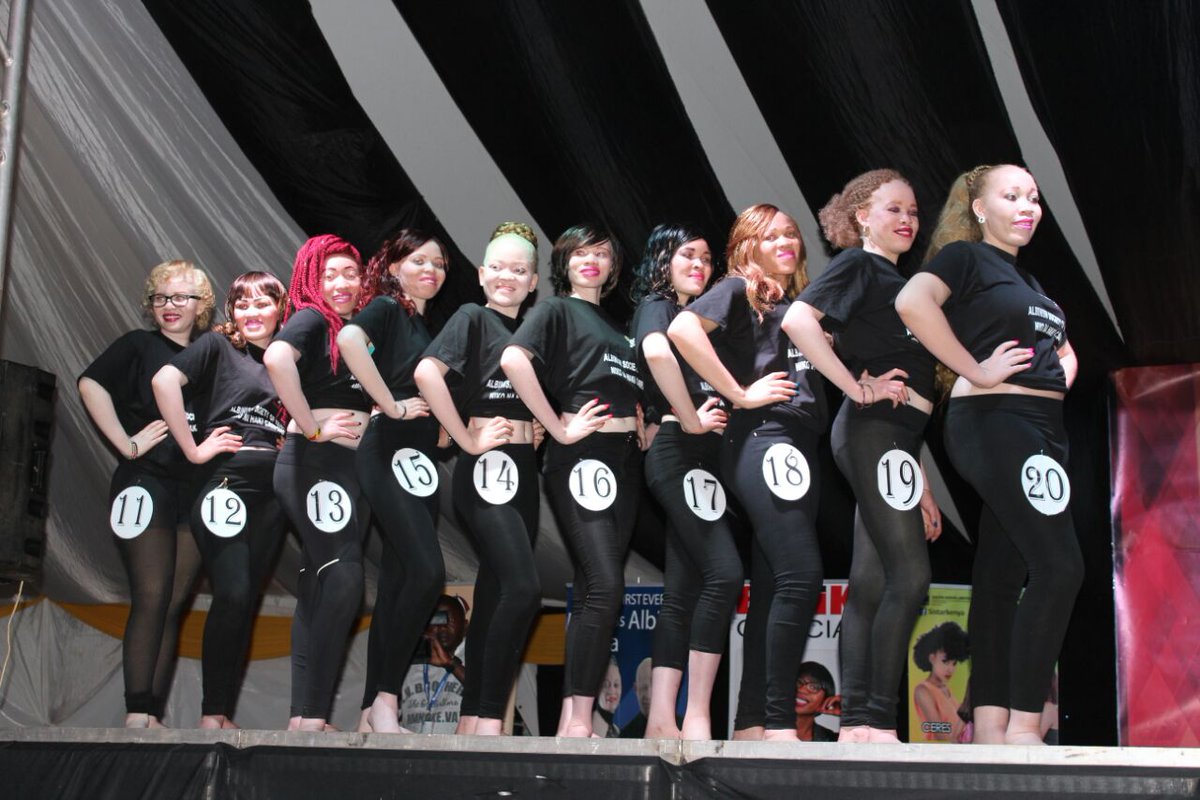
With its evening gowns, celebrity judges and tears of joy, this
beauty pageant in Kenya’s capital, Nairobi, was like many others –
except for one thing: all 20 contestants had albinism.
Titled Beauty Beyond Skin, the world’s first albino pageant was
designed to celebrate people who lack pigment in their skin, hair
and eyes, and to fight the widespread persecution of albinos in
east Africa.
Ten women and 10 men modelled the latest fashions at the event
as they competed for the title of Mr and Miss Albinism Kenya in
front of a crowd of about 1,000 people, including the deputy
president William Ruto.
The contestants used the occasion to petition the government to
better recognise and respect their condition. Some dressed up as
army officers, waiters and police officers to highlight that
albinos belong in every part of society.
But the event was also about fashion: some outfits were crafted
from materials such as cement bags, balloons, paper bags, doormats,
cotton wool and CDs, showcasing creativity and individual
style.
Loyce Lihanda, who was crowned Miss Albinism Kenya, said: “For
so long albinos have been treated as half-humans because they [are]
different. In turn this has affected our self-esteem and the
ability to utilise and explore our skills and talents.
“We come from a mentality that we cannot achieve what ‘normal’
people can because we are different. Yet time has proven that we
can excel.”
In Kenya, albinism is a highly stigmatised condition. The
biggest threat to people with the condition is the trade in albino
body parts – used in traditional medicine and believed to bring
good luck and financial and political gain – on the black
market.
In neighbouring Tanzania, at least 75 children and adults with
albinism have been killed since 2000, and more than 62 others have
escaped with severe injuries after attacks by people seeking to
supply witch doctors thought to pay up to $75,000 (£61,500) for a
full set of body parts.
Last year more than 35 albinos were evacuated from towns near
the Kenya-Tanzania border after an increase in ritual killings,
allegedly linked to politicians hoping to be elected.
Isaac Mwaura, Kenya’s first and only albino MP, said Kenyans
needed to change their attitude towards albinos, and pointed out
that the celebration marked 10 years of campaigning by the Albinism
Society of Kenya.
“A time is coming when we will have people with albinism serving
in the army and police force. We already have some in the National
Youth Service, and this is a milestone in achieving inclusion
despite the difference in skin colour,” he said.
“We have come to say that people with disability are beautiful
people. We can have the names ‘beautiful’, ‘handsome’ and
‘albinism’ in one society.”
Ruto said the government would work with albinos to ensure their
safety. “The dream of every child is valid, and it does not matter
[what] their skin colour [is],” he said.
Ruto said the government had earmarked various benefits for
albinos, including a 100m Kenyan shillings (£807,500) drive for
sunscreen, special sunglasses and tax breaks.
The Albinism Society of Kenya chair, Alex Munyere, said more
needed to be done to dispel myths about the condition. He said
intimidation and harassment had serious repercussions in the lives
of many albinos, leading to trauma and, in extreme cases,
suicide.
“People with albinism suffer a lot of stigma and grow up without
parents,” Munyere said. “If we can appreciate them more, we can
break the cycle of low self-esteem and help them achieve their
dreams.”
